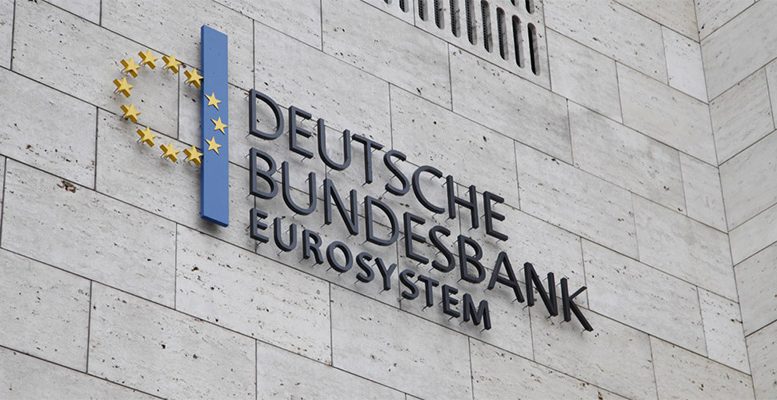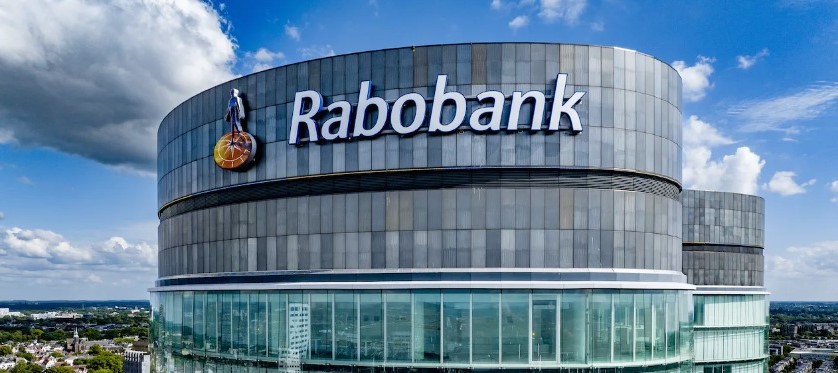
Rabo economists are really excellent
In 2015, Following Wietze REEHORN’s example, I organised ‘Christmas dinners’ for my MT plus their partners in recent years. I have tended to organise some table entertainment as well, sometimes a quiz or a game. One of the best games we played is one where I gave everybody at the dinner a number of controversial sentences about various topics. I had prepared them beforehand. They all had different sentences and didn’t know each other. They could score a point if they managed to say that particular sentence in regular conversation without anybody else identifying it as a pre-determined sentence. Someone correctly identifying a sentence said by someone else as one of the pre-determined sentences would also get a point. It sounds more complicated than it is.
One of the sentences I had given Marijke ZEWUSTER was: ‘Rabo economists are really excellent’. Somehow, late in the evening, she had managed to steer the discussion in the direction of how we compared to the competition and stated that Rabo economists are really excellent. Admittedly, Rabo economists are excellent, but so are we!!! Why stress that the competition is so great? I had completely forgotten about the game and that Marijke was only saying something I myself had written down for her. I was quite annoyed with Marijke and I made that clear to her. She burst out laughing, claiming her well-deserved point. What a fool I was.
Hamburg and the Martinsgans Essen
I am not sure when this started. But one year I was invited by my colleagues from the Bethmann Bank in Hamburg to attend their annual dinner with clients on or around 11 November, the feast of Saint Martin. Goose is the main item on the menu and the dinner is called the Martinsgans Essen (Martin’s goose dinner). I was to give a dinner speech in German. I liked the challenge. So I wrote a speech, had it translated into German, and then read it through a number of times. Then I tried to tell the story as naturally as possible, though I had the text nearby. The dinner was always held at the Hotel Vier Jahreszeiten, one of the best in Hamburg, attended by some 100-150 clients, mostly regulars.
I was invited back the next year and every year after that. I built up a great relationship with my colleagues there and also with clients. Apart from the dinner speech I also participated in a round table discussion with a smaller group of clients. We did the round table twice a year. Christian PUDELEK was in charge of that and it was always a pleasure to be in Hamburg. Róisín came one year and we stayed for the weekend. We had a very enjoyable meal with Christian and his lovely wife Tina.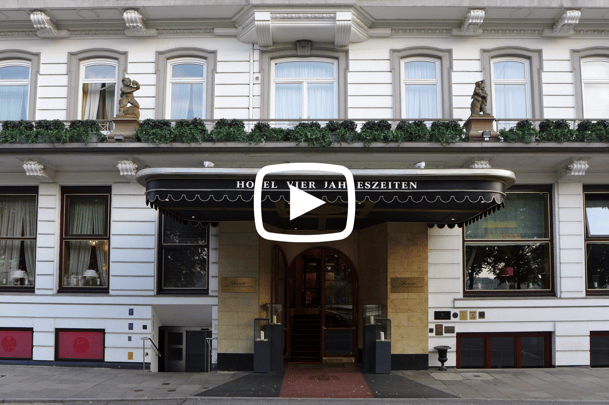
Torsten HEIN is the Niederlassungsleiter, the local boss. He was always very friendly and it was great to see how he engaged with clients. He seemed very popular with them. Torsten kindly told me that when they invited clients some would ask 'kommt der Holländer wieder?' They seemed to like it. I love a German audience. They are patient, they appreciate you making the effort to speak German, forgiving my grammatical and other mistakes and they seem to like my jokes. Germans have respect for the Dutch and they accept that you make fun of them a little, although you must make it clear you know your place. I have great respect for Germans and have always enjoyed being there.
Let me give an example. In the early days of my Hamburg visits the economy was in big trouble. We were going through the worst downturn since 1930. I told clients that I had never seen anything like it, which was true. Then I told them that while preparing for my visit I wanted to compare it to other horrible stuff so I thought about the worst thing I had experienced in my life. The answer to that question is very simple, I said. ‘The worst thing I have experienced in my life so far is the Dutch football team losing the 1974 World Cup final!’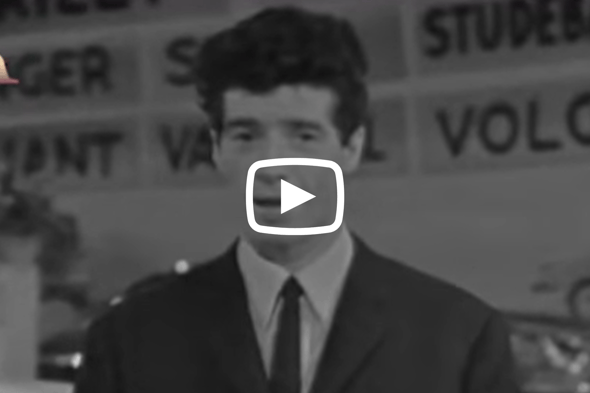
I did my last speech there just some weeks ago. My colleagues gave me a lovely gift and a card with very warm words. Among other things, they wrote that their clients had come ‘to love the ABN AMRO Rudi CARRELL'. Rudi CARRELL was a Dutch entertainer who was big on German -television for many years, so this was an incredibly big compliment and a nice way to approach the end of my career with the bank.
‘Self-appointed director of music at the ICCBE
When I became ABN AMRO’s Chief Economist in 2005, Robert VAN DEN BOSCH, my predecessor told me in no uncertain terms that whatever else happened, I should join the ICCBE (International Conference of Commercial Bank Economists). The ICCBE is a group of around 20 Chief Economists from around the globe. The group’s history goes back to 1937!! As far as I can see, representatives of the Amsterdamsche Bank (the AM in AMRO / ABN AMRO) attended these meetings in the 1950s. So we have a long history with the group. The group meets only once a year for about 4 days. The economists all prepare a paper on a topic allocated to them by the steering committee and it is simply wonderful to spend a few days immersed in the rich discussions you get among peers. What makes the ICCBE extra special is that partners are also welcome. They do not participate in the discussions, but an interesting cultural programme is organized. In the evenings the whole group meets socially.
I love these sorts of traditions and have always enjoyed going to the meetings. Róisín has also always enjoyed them and participated actively. The bond with some of the other members of the group is very strong. We have developed great friendships over the years.
The activities in the evening sometimes require a (long) bus journey, and the dinner on the final day is always a gala dinner, also normally requiring a bus trip. Bus trips can be boring but ICCBE has enough talent and spirit to make them entertaining. I was told that Norbert WALTER, the Chief Economist of Deutsche Bank, who passed away far too young, liked to sing SCHUBERT on the bus. As SCHUBERT wasn’t everybody’s cup of tea other people contributed by singing more recent repertoire. If I say so myself, I am not the worst singer and I like singing, so I have made a contribution from the time we joined. The singing sessions are led by our charismatic Mexican colleague Alberto GOMEZ who always manages to get the thing going. One of the problems with the singing was that people don’t always know all the lyrics of a song, so many songs ended ‘prematurely’ as the singer ran out of words, which, come to think of it, is actually quite unusual for economists. This needed to change.
The annual ICCBE meeting was in Amsterdam in 2010, hosted by ourselves, and I thought a songbook would be a good innovation. I put together the lyrics of a large number of songs and made little booklets that people could sing from on the bus. Every year since, the hosts have produced a songbook, building from my original and often seeking some support.
The following year, the conference was in Chicago. At one of the dinners, there was an attempt to perform a group song, but it did not go particularly well. I had had a couple of glasses of wine and decided that the group needed leadership and that I was the right guy to provide it. So I took the microphone and declared myself ‘the self-appointed director of music’ of the group. It was a colossal mistake. Every year, Alberto makes fun of me, and when the singing hits a lull, he calls on the self-appointed music director to energize the group’s musical endeavors.
Gerrit Zalm makes me an offer I could not refuse
I was approached by DNB to join them, I forget when exactly, but probably in 2011. I was flattered, obviously. But I also felt this would be a move outside of my comfort zone. I had a great job, was very happy, and certainly wasn’t looking for something else. I consulted Toon PEEK, a colleague whose judgment I trusted and valued. He thought this would be an interesting move and he advised me to consider it. I did and in the end, I decided that I was going to take the job. I tried to contact my boss, Wietze REEHORN, but couldn’t reach him, he was in the Middle East. As DNB had asked me for a decision by a particular time, I decided to let Wietze know by sending him a text. He was not impressed by the way I had informed him, and he was right. You don’t resign by sending a text!
Obviously, Wietze could only respect my choice but he advised me to first talk to our CEO, Gerrit ZALM (former Finance Minister), as he felt that Gerrit had a view on what I could expect at DNB. Gerrit asked me if it was a matter of money. I told him that wasn’t the case. ‘In fact’, I told him, ‘I am going to take a pay cut to move to DNB’. Gerrit immediately responded: ‘we will match that!!!’ and he burst out laughing, a trademark response of his.
Gerrit and I had a long and serious chat. He pointed out I had enormous freedom in ABN AMRO and felt that I would not be very happy at DNB. His reasoning seemed convincing and I decided to stay put – a decision I have not regretted.
Aunt Agnes is the centre of attention
Valkenswaard is a small town south of Eindhoven in the south of the Netherlands, close to the Belgian border. My godmother, Tante (Aunt) Agnes, lived there with her husband, Oom (Uncle) Kas, and their three sons, the eldest of whom is a little younger than I am. As a child, I often spent a week with them during school holidays. Oom Kas was a vet and they lived in a beautiful house with a swimming pool. I loved staying with them as a child.
Many years later, I always relished the opportunity to go to that part of the country for work and drop in on my favourite aunt and uncle. On one occasion, local colleagues had invited a large number of guests to the local theatre, ‘de Hofnar’, called after the brand of cigars that were made there until the early 1990s. I was to do a talk on our view on the global economic outlook and our view on various financial markets.
The event at the Hofnar theatre in 2011 was in the evening and I had arranged to visit my aunt and uncle beforehand. Tante Agnes kindly invited me for dinner. She had asked me a couple of days before what she should cook. As my wife does not often cook traditional Dutch ‘cuisine’, I asked for ‘gehaktballen en rode kool met aardappelen en jus’ (meatballs and red cabbage with potatoes and gravy). The meal was delicious.
Before I started my official presentation that evening I told the listeners how happy I was that I had been able to visit my favourite aunt, ‘tante Agnes’ and I gave the details of the meal she had cooked: meatballs and red cabbage with potatoes and gravy. Tante Agnes and Oom Kas were in attendance (and had big smiles on their faces) as were my cousin Kas and his lovely wife Monique. I did my presentation and that went fine.
The local colleagues had organised a second speaker. He was a comedian. The comedian listened to my presentation. He cleverly mixed things I had said with his own stories. He made me look and sound completely ridiculous, but the guy was incredibly funny. At some stage during his talk, he spoke about a group of people who were walking down a field. His tone was very serious at this stage. They were far away so he could not see who they were. He was a master at building up suspense and all the attendees were wondering where this would go. As the group of people came closer he was able to identify them. He said he recognised the woman who was leading the group. “It was ‘tante Agnes’, holding aloft a plate with ‘meatballs and red cabbage with potatoes and gravy’. Uproarious laughter all around. Tante Agnes enjoyed it immensely. During the drinks afterward I heard people asking where this Tante Agnes was and I remember her making it very clear that she was the famous, one and only Tante Agnes. She was the centre of attention and enjoyed it.
Crystal ball and why my son Thomas is still annoyed
In 2012, a family office asked me to join one of their brainstorming meetings about the world economy and investment returns in the longer term. It was an interesting session somewhere in an old country house south of Utrecht. The bank doesn’t charge for such services and as a speaker, you normally get a bottle of wine or so. This time, I got a box that was very heavy. It turned out to contain an actual crystal ball. What a fantastic gift for an economist (!!!) whose job consists, among other things, of gazing into a crystal ball, figuratively speaking. I liked it a lot and, obviously, I still have it. My intention was to put it in my office, but Wilma said it might get stolen. So I keep it in my apartment in Amsterdam.
Over the years, my children, living in Ireland, have regularly come to Amsterdam with friends for the weekend to stay in the apartment when I’m in Ireland. Whenever my youngest son Thomas had been there was usually something broken or damaged. Following one of his visits I noticed some burn-holes in the side of the fake leather couch. They looked like holes you would get if someone (perhaps drunkenly) were to extinguish cigarettes there. So I asked him if they had done that. He denied it with the utmost indignation, but I could see no other explanation, so I held him guilty.
One morning (and I’m rarely there in the mornings), the sun was shining into the apartment and I noticed smoke coming from the side of the couch that was facing the window. I realised it was caused by my crystal ball. The sun was going through the crystal ball in the window sill and the side of the couch was the focal point of the sunbeams. I realised the crystal ball had almost burnt my place down. I removed it from the window sill and it now sits in a place where the sun can’t get to it. Thomas still regularly reminds me of the fact that falsely accused him and t that he holds the moral high ground on this issue.
My hotel is on fire; Didier escapes in a bathrobe
I have done a large number of roadshows over the years, particularly in Asia, as the bank used to have significant private banking operations in Asia. Very often, I was not on my own; Didier DURET, the Chief Investment Officer of private banking was usually also on these trips. Didier and I worked together from 2002 or so until he left the bank in 2017. Didier, a charismatic and unusually tall Frenchman, is a great guy, full of knowledge and humour, and incredibly kind and charming. One time we were on a trip in Asia and found ourselves in Taipei. This time we stayed in a very decent hotel, a tall building, probably 20–30 stories high. I was fast asleep one night when I heard the intercom.
It must have been around 2 am in 2013. I realised the message was in English and Chinese and kept being repeated. It took a while before I was fully awake. But then I realised they were saying that there was an emergency, that we all had to leave immediately, that we should not bring our belongings and could not use the lifts. I decided to check the corridor. When I opened the door, there was smoke in the corridor. I was on the 14th floor. There obviously was a fire and I had no idea where. The adrenaline started pumping like crazy. I remember thinking to myself I am not going to jump from the 14th floor and whatever happens tonight, ‘I am not going to die here, I am going to get out’. I quickly put on trousers and a jumper as it can be cold at night in Taipei, grabbed my valuables, and went looking for the emergency stairs.
I came across an Asian woman and her child. They were arguing. It seemed the mother was telling the child to go down the stairs while she was going to go back to their room to get something. I tried to speak to her but she spoke no English. I was wondering if should I grab the child and bring it down, but I felt that was going to lead to confusion, and maybe cost me valuable time I might not have if I wanted to survive. So I left them. With hindsight, I am not proud of this and it tells me that people, in this case, myself, are unpredictable in serious emergencies.
When I got downstairs many people were already assembled in front of the hotel. It was an interesting sight. All Asians had fully packed and had all their luggage with them, contrary to instructions. Many Westerners had approached the situation as I had, dressed, but with no luggage.
Didier wasn’t there. I did not worry unduly as we were told there had been a fire in the laundry area in the basement. The ventilation system had blown the smoke around the building. While there were a number of impressive fire engines in front of the hotel, the risk to human life seemed very small. After a while, the very tall Didier appeared. He had taken the instructions more seriously than most. He was not fully dressed, just in boxer shorts, a T-shirt, and one of those white bathrobes they provide in hotels. He had put on his socks and shoes, black ones, of course. The combination of a bathrobe and business shoes looked somewhat ridiculous.
As there was no sign of us being let back into our hotel, I suggested we should take a taxi to another hotel. We needed our sleep as we had lots of clients coming to an event the next day. Didier agreed. You can imagine that the hotel receptionist was surprised to get guests in the middle of the night, one of whom was dressed in a bathrobe. But it soon registered with them as they had heard of the evacuation of our hotel.
The adrenaline was pumping vigorously through my veins, I didn’t get a wink of sleep that night. The next morning, Didier in his boxers, T-shirt, black socks and black shoes, and a white bathrobe attracted the attention of all the other hotel guests, who were now out in big numbers!! The main thing, we survived. Luckily too, contrary to our fears, our clothes in the original hotel were not smoked-damaged, as neither of us would have had much luck buying replacement outfits in our size in that part of the world.
Prime Minister Mark RUTTE applauds me
Some of the rating agencies lowered their rating for the Dutch sovereign in 2013. Holland was no longer AAA. In my opinion, they were wrong, but I might be biased.
 Sometime in 2014, I was invited to address a Chinese delegation of business people and politicians at a dinner in the Van Gogh Museum. I don’t know if these people understood English, but every couple of sentences had to be translated into Chinese. That tends to interrupt your flow as a speaker.
Sometime in 2014, I was invited to address a Chinese delegation of business people and politicians at a dinner in the Van Gogh Museum. I don’t know if these people understood English, but every couple of sentences had to be translated into Chinese. That tends to interrupt your flow as a speaker.
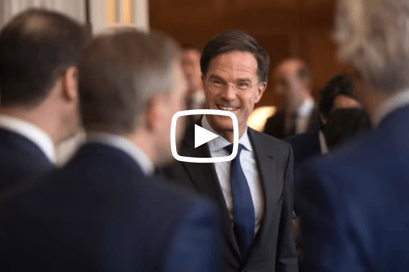 The weaker rating was something I was asked to comment on. So I did. In no uncertain terms, I explained why the rating agencies were wrong and why they would soon reverse that step. The Dutch Prime Minister was sitting at a table in the front row in the middle. He spontaneously applauded me. It wasn’t a standing ovation, but I was pleased all the same.
The weaker rating was something I was asked to comment on. So I did. In no uncertain terms, I explained why the rating agencies were wrong and why they would soon reverse that step. The Dutch Prime Minister was sitting at a table in the front row in the middle. He spontaneously applauded me. It wasn’t a standing ovation, but I was pleased all the same.

